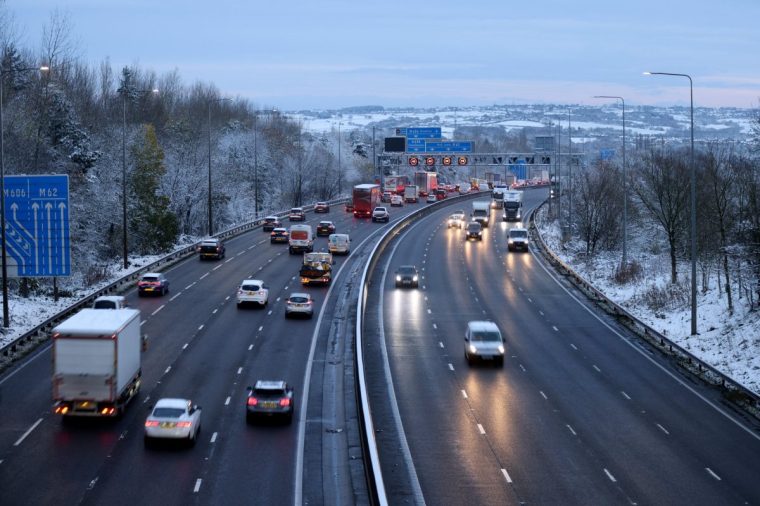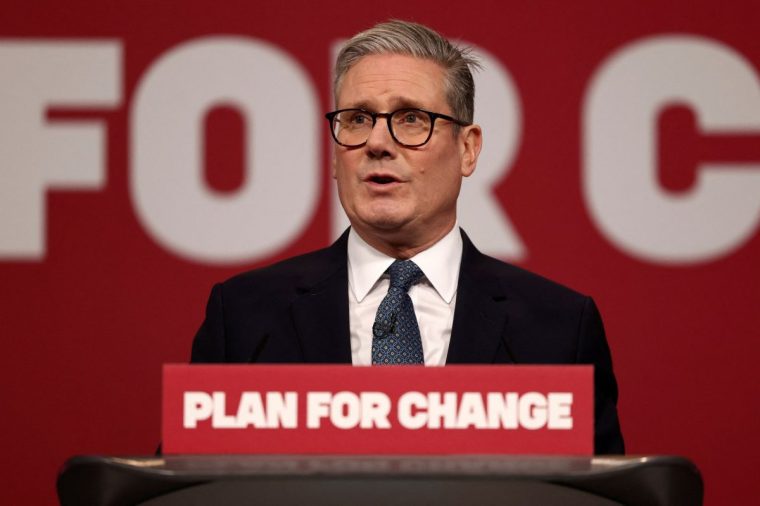Labour has promised to sign off 150 planning decisions on major infrastructure projects by the end of the current Parliament.
In his speech outlining his “Plan for Change”, Sir Keir Starmer said this would be double the number approved by the previous government and deliver “the infrastructure the country needs”.
The document published by No 10 did not specify any projects, but the Department for Housing, Communities and Local Government later said they will include “gigafactories, solar farms, roads and railways”.
The Planning Act 2008 created a separate planning route for National Significant Infrastructure Projects (NSIPs) so that they go straight to the relevant Secretary of State for approval, rather than local planning authorities.
It was hoped that the 2008 legislation would mean projects could receive consent within around three months, but in reality the process is taking several months or even years.
The Government hopes to achieve its aim through a new National Planning Policy Framework to be published at the end of the year.
A Planning and Infrastructure Bill was also unveiled in the summer to reform the planning system and speed up the delivery of infrastructure projects.
Roads, solar farms and wind farms
There are 13 projects which are currently being examined by the Secretary of State as part of the final stage before approval.
These are therefore among the most likely to get the green light first from Labour.
They include the A46 Newark bypass – a route connecting the M1 and Leicester to the A1 and central Lincolnshire.
The scheme would involve widening the heavily-congested route at an estimated cost of more than £500m.

Another proposal is a giant solar farm in Darlington.
The Byers Gill project would be capable of generating 180megawatts (MW) of electricity, enough to power more than 70,000 homes, according to Developer RWE.
It has faced some opposition from local residents who argue it will devastate communities and destroy farmland.
In Greater Manchester, Highways England is awaiting a decision on a £340m plan to expand the Simister Island interchange which brings together the M60, M62 and M66 motorways.
It is one of the busiest junctions in the the North West and is used by around 90,000 vehicles each day.
Highways England says it has reached capacity and is in need of a major upgrade.
The project has been promised by success Conservative governments since at least 2014.
Other projects in the examination stage include an offshore wind farm in Morecambe, a decarbonisation plant on the River Thames and a solar farm in South Wales.
Rail line, Heathrow, reservoirs
There are 58 projects currently in the “pre-application” phase, meaning they have not yet been submitted to the Planning Inspectorate.
They include a £5bn plan to build a new railway line Bedford Station and Cambridge Station.
It had support from the previous Tory government and a preferred route was announced in 2023.
However, according to the planning inspectorate, an application is not expected until summer 2026.
The expansion of Heathrow which would include building a new runway to the North West of the existing airport is also on the list.
This project would enable Britain’s largest airport to accommodate at least 740,000 commercial and non-commercial flights per year.
The controversial scheme has faced sustained opposition in some quarters, but the Government is under renewed pressure to make a decision.
Writing in the The Independent, Stewart Wingate, chief executive of Gatwick airport, said: “London’s airports are already reaching capacity and demand is forecast to grow by more than 30 million passengers by 2030. We are already full at peak times.”
Several water infrastructure projects are in the pre-application phase, including plans for new reservoirs in Lincolnshire and The Fens.
Other projects including new electricity substations and overhead lines in Grimsby, a water transfer station in Hampshire and a hydrogen pipeline in the north-west.
More decisions on infrastructre ahead
Labour says this pledge to speed-up decisions on infrastructure comes on top of its promise to build 1.5 million homes by 2029.
However, the government has also refused to recommit to funding announced by Rishi Sunak’s government, such as the £12bn for a new rail line between Manchester and Liverpool, or £2bn for new railway station at Bradford.
i understands local leaders are currently in discussions with Starmer’s government ahead of the Spending Review next spring which will see a new ten-year strategy for infrastructure investment.

Deputy Prime Minister Angela Rayner said: “We were elected on the promise of change and turning the page on failure, rebuilding this country from the bottom up.
“That’s why we won’t let the voices of the small minority of blockers hold the country hostage when it comes to growth.
“We’ve seen this done over the past year – with decisions on vital infrastructure with huge potential to grow our economy being unnecessarily delayed.
“Our Plan for Change will stop this and drive real improvements in the lives of working people.”
‘Believe it when we see it’
While Labour’s promises have been broadly welcomed, experts say there are big challanges ahead.
National Infrastructure Commission Chair Sir John Armitt said signing off 150 development consent orders was “a huge undertaking” but an essential one given “the sheer magnitude of transformative infrastructure the country needs”.
This includes, he said: “At least 17 major electricity transmission projects to deliver clean power by 2030 and ramped up renewable generation; at least nine major water storage and transfer programmes to keep the taps running; and progress on major projects like East West Rail and Lower Thames Crossing to speed up the country’s transport networks.
“Government’s chances of success will depend on turning its early commitments into sustained action to jump start a lethargic planning system and ensure it becomes a tool for progress rather than an anchor on UK growth.
“For starters, that means giving the Planning Inspectorate the additional resources it will need to deal with the increased throughput of projects.”
Dr Kristian Niemietz, editorial director and head of Political Economy at the free market think-tank the Institute of Economic Affairs, said governments of all stripes have made similar commitments but failed to follow through.
“Such announcements have become the political equivalent of the New Year’s Resolution to stop smoking, go to the gym, and become fluent in French,” he said.
“Recognising that these things are desirable is the easy part. The challenge to prevent another false dawn is to stick to them in the face of adversity.
“IEA authors have been writing about how Britain is needlessly impoverishing itself with planning constraints and professional obstructionism since 1988, including in my paper ‘Home Win’, and urging politicians to tackle the problem.
“Many have paid lip service to it without ever following through. We will believe it when we see it.”


